Saint Michael’s Theatre, New Ross, Co Wexford
Forty years ago this month, Pope John Paul II came to Ireland. I was just beginning my last year in school at Saint Columb’s College, Derry. It was a tense time. In the three months leading up to the pope’s visit, 36 people were killed in the Troubles – including 16 Catholic and Protestant civilians.
In 1979 went to see the Pope at Drogheda and subconsciously I think his words on that occasion have possibly framed much of my thinking about this evening’s theme – the role of faith in our politics.
Pope John Paul II was stopping off in Ireland on his way to address the United Nations in New York on the theme of peace, justice and human rights. He came to Drogheda as “…a pilgrim of peace”[1]. His message that day reiterated familiar themes from the visits he had already made to Mexico and Poland during the first year of his pontificate:
“Every human being has inalienable rights that must be respected … The moral law, guardian of human rights, protector of the dignity of man, cannot be set aside by any person or group, or by the State itself, for any cause, …The law of God stands in judgment over all reasons of State”[2].
Pope John Paul urged politicians – those who embrace “the noble vocation of politics”[3]– to have the courage to face up to their responsibility “to be leaders in the cause of peace, reconciliation and justice”[4].
As a young seventeen year old, many of these points went over my head. But I distinctly remember the Holy Father’s passionate appeal to those who were engaged in violence: “On my knees I beg you to turn away from the paths of violence and to return to the ways of peace”[5]. I wonder in hindsight about the impact of Pope John Paul’s words that day. Violence continued. Many more lives would be lost. And here we are, forty years later, with no Northern Ireland Assembly, increasing sectarianism over the summer, and as Brexit looms, these islands going through a period of dangerous political, social and economic uncertainty.
But still, for me, Pope John Paul’s tone in Drogheda exemplifies the way in which faith can best speak in the public and political sphere – with confidence, courage, clarity and challenge, but also with humility and prayer – recognising that not everyone will hear, or even be prepared to listen.
Just before he left Ireland, at Limerick, Pope John Paul reminded lay people that they are the ones who are called to insert the values of Christ into the reality of the world in which they live – the world of politics, the mass media, science, technology, culture, education, industry and work; their task is to “permeate society”[6], from within, with the leaven of the Gospel. He also pointed out that Ireland had difficult choices to make in the years ahead. He asked:
“Will it be … the way that many nations have gone, giving excessive importance to economic growth and material possessions while neglecting the things of the spirit? The way of substituting a new ethic of temporal enjoyment for the law of God? The way of false freedom which is only slavery to decadence? Will it be the way of subjugating the dignity of the human person to the totalitarian domination of the State? … Ireland must choose”[7].
Faithful citizens
Last summer, when Pope Francis visited this country for the 9th World Meeting of the Families, he found a very changed Ireland. But Pope Francis’ message to lay believers is not unlike that of his Polish predecessor. He says:
“An authentic faith … always involves a deep desire to change the world, to transmit values, to leave this earth somehow better than we found it. We love this magnificent planet on which God has put us, and we love the human family which dwells here … If indeed ‘the just ordering of society and of the state is a central responsibility of politics,’ the Church, ‘cannot and must not remain on the sidelines in the fight for justice’”[8].
Bringing faith to politics is therefore not an optional extra for a committed Christian. We are called to be “faith – full” citizens, bearing witness in the public sphere, to scrutinise “the signs of the times”[9], listening all the while to our informed conscience – which is the voice of God speaking in our hearts – willing us towards the good, and warning us against evil.
Our faith makes us want to cry out at the extent of homelessness, poverty, addictions and violence, criminality and corruption on the streets of Ireland. It moves us to weep that so many of our young people resort to self-harm and taking their own lives. We cannot ignore the plight of the refugee and those who are hungry, persecuted, trafficked and exploited in our world. We rightly feel ashamed and repulsed by the horrific revelations of child abuse and other shameful episodes where the reputation of the Church was put before the compassionate call of the Gospel to protect the vulnerable and reach out to the marginalised.
But faith also confronts us to examine our own lives and attitudes. Amidst a world of unbridled consumption and the maximisation of profit, faith challenges us towards a more “responsible simplicity of life”[10]. Hearing the “cry of the poor”[11] and the “cry of the earth”[12], it moves our hearts to want to do something to protect the very future of our planet, our common home. Faith allows us to see more clearly that all these issues are connected[13]. As Pope Benedict XVI put it:
“The book of nature is one and indivisible: it takes in not only the environment, but also life, sexuality, marriage, the family, social relations: in a word, integral human development. Our duties towards the environment are linked to our duties towards the human person, considered in himself and in relation to others”[14].
Faith is therefore no mere private affair. It entails a social duty[15], to help protect “the future of humanity”[16]. The manifesto for faith in political discourse draws upon an integral vision of the dignity and vocation of the human person which is linked to the common good. People of faith seek to present a consistent ethic of life based on natural law, which includes for example, the sacredness of all human life and the dignity of the person, the centrality of the family, the need for solidarity and a fair distribution of goods in the world and care for the earth, our common home. Our vision is of a society marked by a culture of peace, justice and care for all, especially the most vulnerable.
But citizens of faith do not enter the public square with some sort of rule book, theory or code. We bring first and foremost our love and friendship for Jesus Christ our Risen Lord, and a passionate desire to share his Good News. We seek to present to others God’s truth, beauty and goodness so that they too will be able to experience a personal encounter with the joy of God’s love – and that in turn can make a real difference to society and help make the world a better place.
Faith and secularisation
In all this, Pope Benedict XVI cautions us, however, not to think of the Church as some kind of political agent. “The Church cannot and must not take upon herself the political battle to bring about the most just society possible. She cannot and must not replace the State”[17]. The Church recognises the reality of secularisation and supports the rightful “…autonomy of earthly affairs…”[18]. But it sees this as being very different from ‘secularism’, which at times quite aggressively seeks to exclude altogether the voice of faith and religion from the public square. Clashes are likely to occur when culture is characterised by moral relativism – where little is considered to be definitive, where the absolute rights of individuals are held to be paramount, and where a so-called ‘illusion of self-sufficiency’ is perpetuated. In this context, people of faith who draw upon objective moral norms in certain matters, can be portrayed as unjust, prejudiced, and as a threat to individual freedom and autonomy.
Archbishop Rowan Williams has spoken of what he calls ‘programmatic secularism’ – a kind of ‘exclusive public orthodoxy’, in which, “…any and every public manifestation of any particular religious allegiance is to be ironed out so that everyone may share a clear public loyalty to the state, unclouded by private convictions, and any sign of such private convictions are rigorously banned from public space”[19].
Such aggressive secularism brands faith as a kind of personal and private preference which cannot stand alongside the ‘supposedly neutral public order of rational persons’. At best it relegates faith to the privacy of our homes and churches. At worst it tends towards intolerance and insists that in a democratic republic the default position should be no societal acknowledgment of God. It sees the moral convictions of Christians in public life as automatically suspect – perhaps even illegitimate because they are advanced by believers[20].
Cardinal Parolin, Secretary of State to Pope Francis, recently stressed however that:
“Religious freedom is not only that of private belief or worship. It is the liberty to live, both privately and publicly, according to the ethical principles resulting from religious principles. This is a great challenge in the globalized world, where weak convictions also lower the general ethical level, and in the name of a false concept of tolerance, it ends in persecuting those who defend their faith”[21].
A ‘healthy secularity’, on the other hand, admits a distinction between Church and State but allows the space for Christians to intervene in public debate and to make their arguments as brothers, sisters and friends alongside those of all faiths and none. After all, the promotion of fundamental moral values is not confessional per se. These values are defended by the Church precisely because they are human even before they are Christian; they are rooted in the natural law and accessible to reason. They are views that can be shared by all people of good will. President Kennedy, in his inaugural address, identified as a defining issue the belief that the rights of man come not from the generosity of the state but from the hand of God[22]. He was undoubtedly recognising that the dignity of man is rooted in his creation in the image and likeness of God. Such rights therefore have their basis in the natural and divine law. This is the crux of the Church’s concern today – that the State does not promote an erroneous understanding of the human person through – for example – introducing laws that permit the destruction of innocent human life.
Of course many political questions remain open to being debated freely within the legitimate autonomy of the State, reaching diverse conclusions. The Church does not impose concrete technical remedies in circumstances that are purely contingent and subject to prudential consideration[23]. However, there are matters where Catholics are bound both by their faith and by reason to give a consistent witness to the natural moral law[24]. Such issues include the inviolability of human life at all its stages, from conception until natural death; the irreplaceable role in society of the family based upon marriage between a man and a woman; and, the right of parents to educate their children in accordance with their faith and beliefs.
Catholic politicians, in particular, have an important, but very challenging, responsibility nowadays to support laws which uphold the dignity of every human person made in God’s image – even when this is not the popular opinion to hold. I would say to them: Laws and policies that fundamentally contradict the moral law, such as those that would violate the life and integrity of any person at any stage, from conception to death, are fundamentally unjust and must be opposed, not only on the grounds of faith, but also by virtue of right reason. The life of the Christian demands that believers give a coherent witness to the Gospel in every facet of their lives[25]. People of faith must always be attentive to the danger of living parallel lives whereby they compartmentalise their existence into spiritual and secular spheres. Neither should they confuse their personal opinion with a well-formed Christian conscience.
Arguably President Kennedy’s 1960 speech on religion and politics[26] contributed to the phenomenon of politicians professing personal adherence to Christian moral principles but holding that they could not give effect to them as legislators. Against this view, I contend that the truth is one and valid for all. Such fundamental values are not narrow Catholic pre-occupations but principles that redound to the good of every man and woman. The truth of the dignity of the human person and the fundamental right to life is discoverable by all people of goodwill.
Interestingly, in that same Houston speech, President Kennedy did raise the prospect of resigning in the event of his official duties conflicting with his conscience. This is a powerful reminder that a Christian’s foremost loyalty is to God – “Obedience to God comes before obedience to men;…”[27]. St. Thomas More (patron of politicians and statesmen) offers that salutary example of someone working diligently in the service of his country but remembering that a Christian’s first allegiance is to the One who created us out of love, and Who died for our sins.
Dialogue
The engagement of people of faith in politics, together with all people of goodwill, is to be encouraged and welcomed. In the context of a ‘healthy secularity’, faith can make a positive, if sometimes challenging contribution. To allow space for faith to engage in our politics is not to subvert or threaten democracy and pluralism, but to enhance it.
People of faith, who represent a significant community in the public sphere, have a key role to play, for example, in reminding us of our story, of our soul. They do so in a positive way, alongside those of other faiths and none, by encouraging conversations at a national level on significant issues and values. The Catholic Church, for example, can draw upon its rich tradition of social teaching in such a process.
God should never be portrayed as the oppressor of humanity. God is Love and desires the happiness of all human beings. As Pope Saint John Paul II once said, we are “…at the service of love”. We therefore enter the public sphere with his words, saying: “Do not be afraid, the Gospel is not against you, but for you”. We try to convince others that , as Pope Benedict put it, “… If we let Christ into our lives, we lose nothing, nothing, absolutely nothing of what makes life free, beautiful and great”[28]. We are not there to impose, but to invite; we are not there to simply oppose, but to offer the gift and message of salvation.
When he came to England in 2010, Pope Benedict XVI used his address in Westminster Hall to explore the possibility of a dialogue between faith and reason at every level of national life. He insisted that, “…the world of reason and the world of faith – the world of secular rationality and the world of religious belief – need one another and should not be afraid to enter into a profound and ongoing dialogue, for the good of our civilization”[29].
He was anxious to clarify that:
“The Catholic tradition maintains that the objective norms governing right action are accessible to reason, prescinding from the content of revelation. According to this understanding, the role of religion in political debate is not so much to supply these norms, as if they could not be known by non-believers – still less to propose concrete political solutions, which would lie altogether outside the competence of religion – but rather to help purify and shed light upon the application of reason to the discovery of objective moral principles”[30].
I welcome the Taoiseach’s recent calls for the building of a new relationship between Church and State. The Church and the political community, whilst autonomous and independent of each other, would do well in these troubled times to dialogue and cooperate in the service of Ireland and the protection of humanity. In recent weeks people have spoken to me of politics descending into a dangerous factionalism and of a weakening of confidence in the integrity of parliamentary democracy. It is vitally important that Church, civic society and government work together to preserve the fundamental concern for the common good. As I was preparing for this talk entitled: ‘What is the role of faith in our politics?’ a friend remarked, ‘perhaps they should have asked you to speak on the topic – ‘Are people losing faith in our politics?’
The Church, of course, may often appear to be counter-cultural, and a sign of contradiction in the secular world. But it is not extra-cultural. People of faith breathe, believe, live and work alongside people of other traditions, faiths and none. They are people who care, and who are prepared to demonstrate that by contributing hugely, and often voluntarily, their gifts for the common good.
In an Ireland where rising individualism is often accompanied by growing disaffection and disillusionment with the leadership provided by both Church leaders and public representatives, – faith and politics need each other. The State will flourish if it is able to sustain itself as a ‘community of communities’; it will struggle if communities, like faith communities, who wish to play a full role in public life while exercising freely their spiritual, cultural, educational and charitable activities, find themselves unwelcome, forced to remove all their religious and cultural symbols from public spaces, or even made to retreat from public discourse altogether.
The marginalisation of faith communities from public life, especially here in Ireland where the Christian faith is so deeply embedded in our culture, language, landscape and identity, would surely not bode well for the future of our country, our sense of who we are, where we have come from, and who we want to become in the years and decades ahead.
Thank you for listening.
___________
[1] John Paul II, Homily at Holy Mass in Drogheda (September 29, 1979), 15.
2 Ibid., 8.
3 Ibid., 14.
4 Ibid.
5 Ibid., 11.
6 John Paul II, Homily at Holy Mass in Limerick (October 1, 1979), 3.
7 Ibid.
8 Francis, Apostolic Exhortation Evangelii Gaudium (2013), 183.
9 Second Vatican Ecumenical Council, Pastoral Constitution on the Church in the Modern World Gaudium et Spes, 4.
10 Francis, Encyclical Letter Laudato Si’ (2015), 214.
11 Ibid., 49.
12 Ibid.
13 Ibid 91,92
14 Benedict XVI, Encyclical Letter Caritas in Veritate (2009), 51.
15 See Catechism of the Catholic Church, 2105.
16 Second Vatican Ecumenical Council, Pastoral Constitution on the Church in the Modern World Gaudium et Spes, 31.
17 Benedict XVI, Encyclical Letter Deus Caritas Est (2005), 28.
18 Second Vatican Ecumenical Council, Pastoral Constitution on the Church in the Modern World Gaudium et Spes, 36.
19 Rowan Williams, Faith in the Public Square (2012), 3.
20 See Congregation for the Doctrine of the Faith, Doctrinal Note on some questions regarding the participation of Catholics in political life (2002), 6.
21 Pietro Cardinal Parolin, Closing Remarks at the International Religious Freedom Symposium, US Embassy to the Holy See, Rome (April 3, 2019).
22 See John F. Kennedy, Inaugural Address (January 20, 1961).
23 See Congregation for the Doctrine of the Faith, Doctrinal Note on some questions regarding the participation of Catholics in political life (2002), 3.
24 Ibid., 4.
25 See John Paul II, Apostolic Exhortation Christifideles Laici (1988), 59.
26 See John F. Kennedy, Address to the Greater Houston Ministerial Association (September 12, 1960).
27 Acts 5:29 (The CTS New Catholic Bible, 2007).
28 Benedict XVI, Homily at Holy Mass for the inauguration of the Pontificate (April 24, 2005).
29 Benedict XVI, Address at a Meeting with the Representatives of British Society (September 17, 2010).
30 Ibid.
ENDS
[1] John Paul II, Homily at Holy Mass in Drogheda (September 29, 1979), 15.
[2] Ibid., 8.
[3] Ibid., 14.
[4] Ibid.
[5] Ibid., 11.
[6] John Paul II, Homily at Holy Mass in Limerick (October 1, 1979), 3.
[7] Ibid.
[8] Francis, Apostolic Exhortation Evangelii Gaudium (2013), 183.
[9] Second Vatican Ecumenical Council, Pastoral Constitution on the Church in the Modern World Gaudium et Spes, 4.
[10] Francis, Encyclical Letter Laudato Si’ (2015), 214.
[11] Ibid., 49.
[12] Ibid.
[13] Ibid 91,92
[14] Benedict XVI, Encyclical Letter Caritas in Veritate (2009), 51.
[15] See Catechism of the Catholic Church, 2105.
[16] Second Vatican Ecumenical Council, Pastoral Constitution on the Church in the Modern World Gaudium et Spes, 31.
[17] Benedict XVI, Encyclical Letter Deus Caritas Est (2005), 28.
[18] Second Vatican Ecumenical Council, Pastoral Constitution on the Church in the Modern World Gaudium et Spes, 36.
[19] Rowan Williams, Faith in the Public Square (2012), 3.
[20] See Congregation for the Doctrine of the Faith, Doctrinal Note on some questions regarding the participation of Catholics in political life (2002), 6.
[21] Pietro Cardinal Parolin, Closing Remarks at the International Religious Freedom Symposium, US Embassy to the Holy See, Rome (April 3, 2019).
[22] See John F. Kennedy, Inaugural Address (January 20, 1961).
[23] See Congregation for the Doctrine of the Faith, Doctrinal Note on some questions regarding the participation of Catholics in political life (2002), 3.
[24] Ibid., 4.
[25] See John Paul II, Apostolic Exhortation Christifideles Laici (1988), 59.
[26] See John F. Kennedy, Address to the Greater Houston Ministerial Association (September 12, 1960).
[27] Acts 5:29 (The CTS New Catholic Bible, 2007).
[28] Benedict XVI, Homily at Holy Mass for the inauguration of the Pontificate (April 24, 2005).
[29] Benedict XVI, Address at a Meeting with the Representatives of British Society (September 17, 2010).
[30] Ibid.



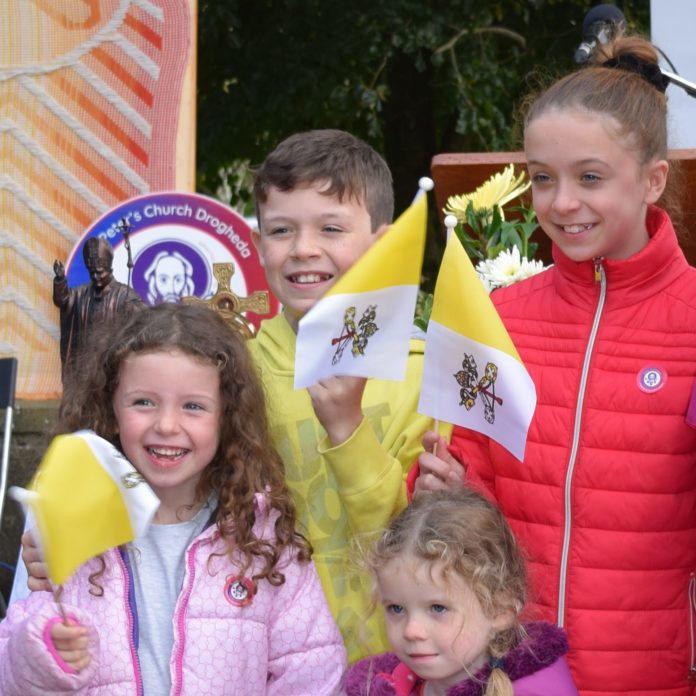
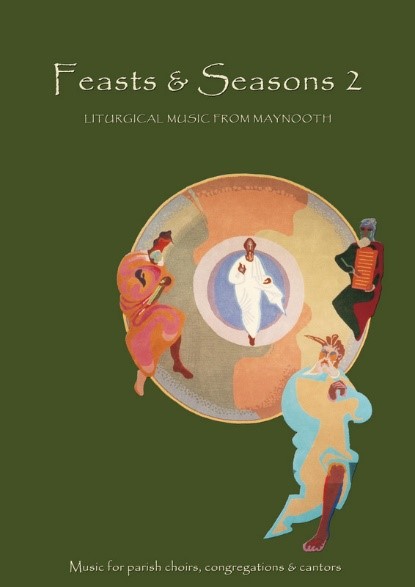
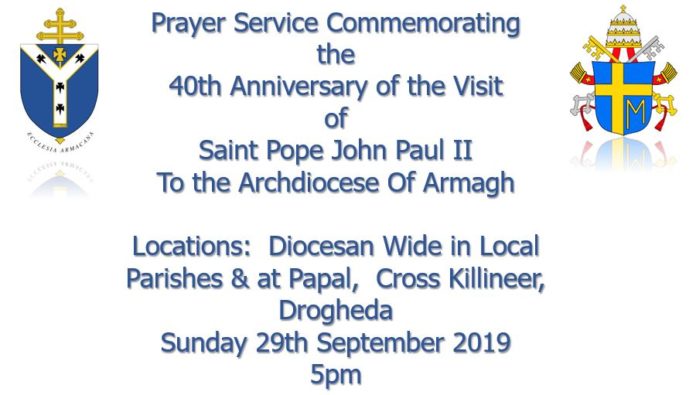
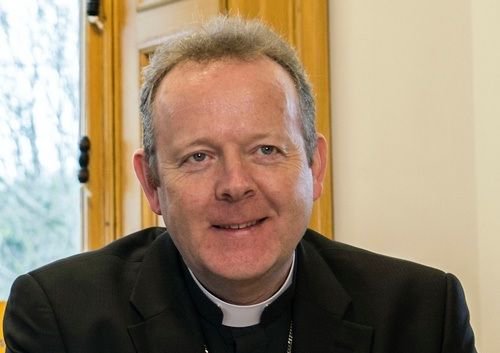
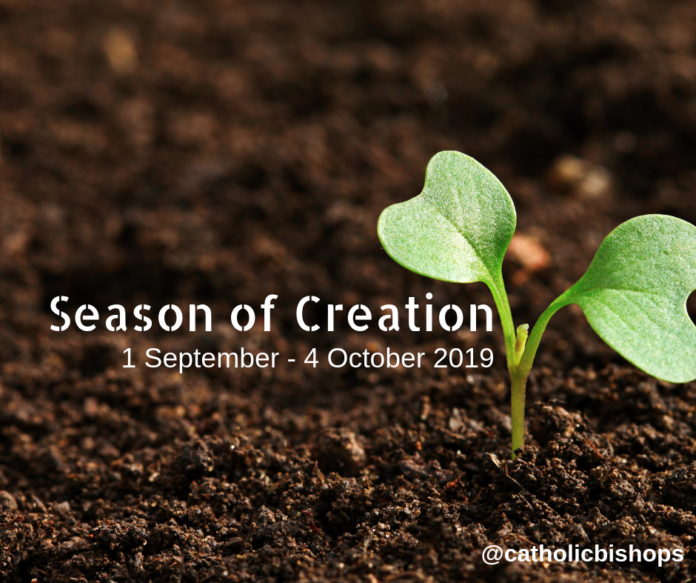

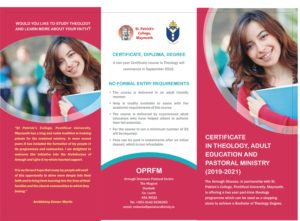

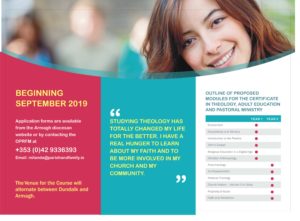
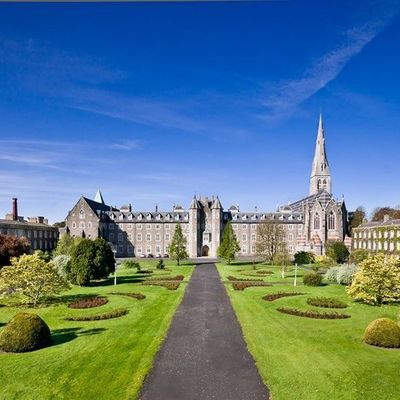
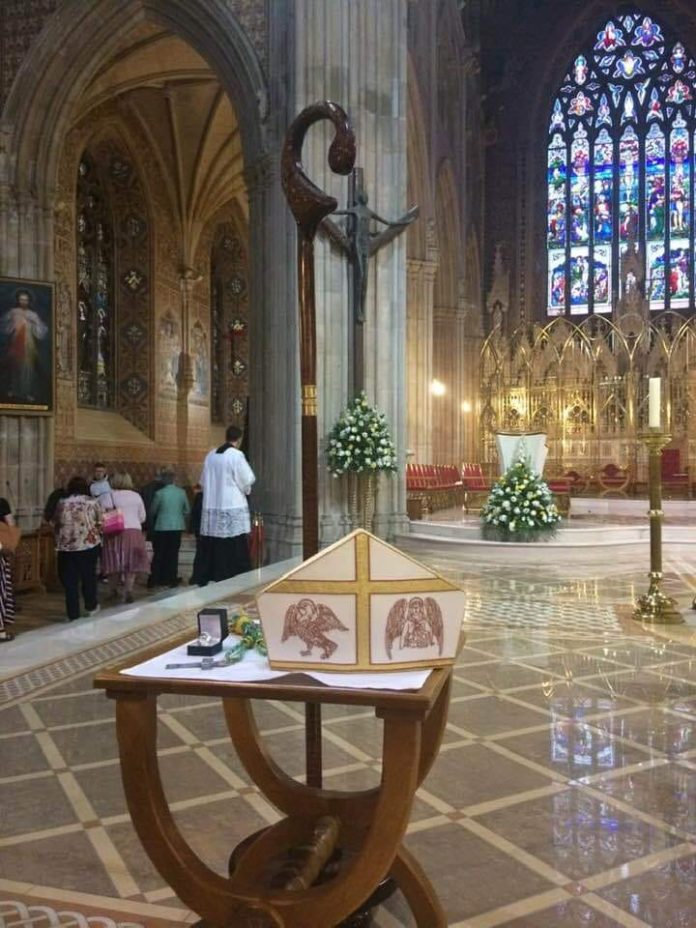




















You must be logged in to post a comment.